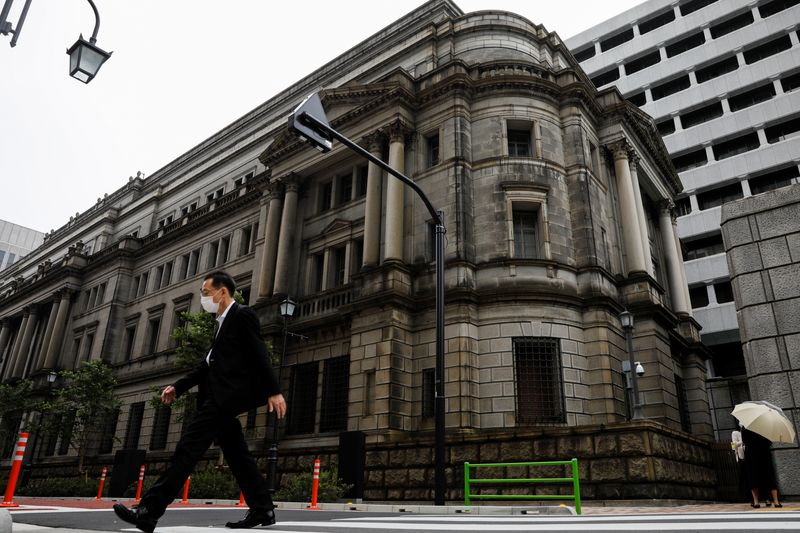TOKYO (Reuters) – The Bank of Japan said on Friday it would begin experimenting next year on how to operate its own digital currency, joining efforts by other central banks to catch up to rapid private-sector innovation.
The move came in tandem with an announcement by a group of seven major central banks, including the BOJ, on what they see as core features of a central bank digital currency (CBDC) such as resilience and a clear legal framework.
It also falls in line with new Japanese Prime Minister Yoshihide Suga’s focus on promoting digitalisation and administrative reform to boost the country’s competitiveness.
In a report laying out its approach on CBDC, the BOJ said it will conduct a first phase of experiments on basic functions core to CBDCs, such as issuance and distribution, early in the fiscal year beginning in April 2021.
The experiments will be part of the BOJ’s efforts to look more closely into how it can issue general-purpose CBDCs, intended to be used widely among the general public including companies and households.
Such CBDCs will complement, not replace, cash and focus on making payment and settlement systems more convenient, it said.
The BOJ also plans to have financial institutions and other private entities serve as intermediaries between the central bank and end users, rather than have companies and households hold deposits directly with the BOJ, the report said.
“While the BOJ currently has no plan to issue CBDC … it’s important to prepare thoroughly to respond to changes in circumstances,” the report said.
In the second phase of experiments, the BOJ will look at the potential design of CBDCs such as whether it should set a limit on the amount issued and pay a remuneration on deposits.
As the final step before issuance, the BOJ will launch a pilot programme involving private firms and households, it said.
The BOJ added it would be desirable for the CBDC to be used not only for domestic but cross-border payments.
Japan has been cautious about moving too quickly on digital currencies given the social disruptions it could cause in a country that has the world’s most cash-loving population.
But China’s steady progress toward issuing digital currency has prompted the government to reconsider, and pledge in this year’s policy platform to look more closely at the idea.
The BOJ’s recent efforts to catch up include creating a new team focusing on issuing digital currency and conducting joint research with other central banks.
(Reporting by Leika Kihara; editing by Simon Cameron-Moore)

























